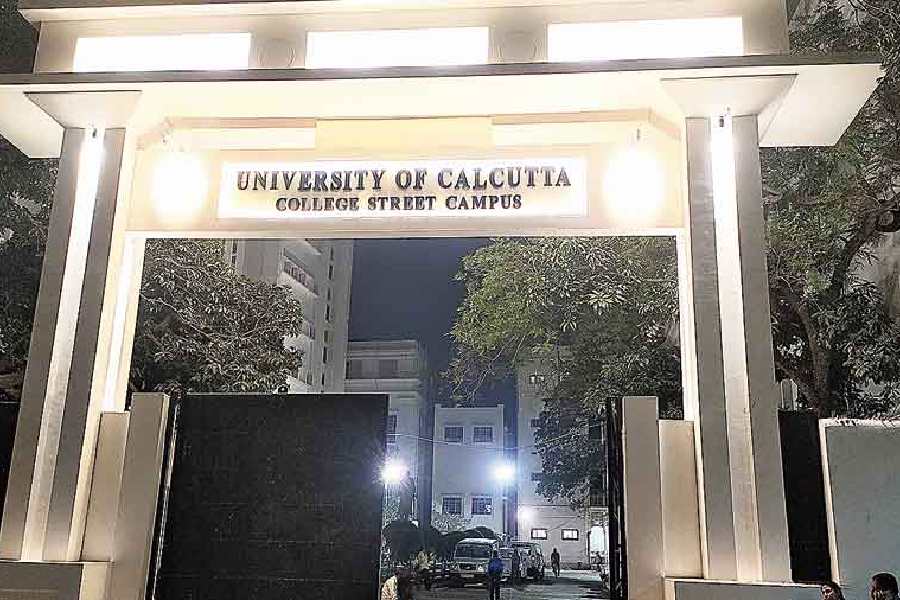The state higher education department has asked Calcutta University not to hold the meeting of its syndicate because the university does not have a “regular (full-term) vice-chancellor”.
The department, in a letter addressed to CU’s registrar on Friday evening, said holding any meeting of its decision-making body (syndicate) in the absence of a regular VC would be in contravention of rules.
CU registrar Debasis Das, before the Diwali break, had written to the department seeking permission that they be allowed to hold a meeting of the syndicate after they had to postpone a meeting of the decision-making body on November 7 following opposition from the department on identical grounds.
But the department in its latest communication did not approve of the syndicate meeting, said Das.
He said they wanted to hold the meeting because rules and regulations for holding exams under the four-year undergraduate programme, the
syllabus for the new undergraduate programme and other administrative and academic issues needed to be approved.
“If the syndicate cannot be held it will create a deadlock”, Das told The Telegraph.
The university since June is being helmed by Santa Datta, a CU professor, who
was handpicked by governor C.V. Ananda Bose to discharge the duties of VC allegedly without consulting the department.
Bose is the ex-officio chancellor of the state-aided universities.
A CU official said that since becoming the officiating VC, Datta has conducted several syndicate meetings and the department did not object.
“The department started raising its objection ever since the Supreme Court said in an order on October 6 that the officiating VCs engaged by the chancellor would receive the pay or perks not of a VC but those commensurate with their previous posts,” said a CU official.
“The department on October 16 informed CU it could not hold any meeting of the syndicate without permission. Thereafter, when permission was sought, the prayer has not been granted,” the official said.
Supreme Court gave the order in response to a petition through which the state government challenged the chancellor’s decision to appoint VCs unilaterally.
